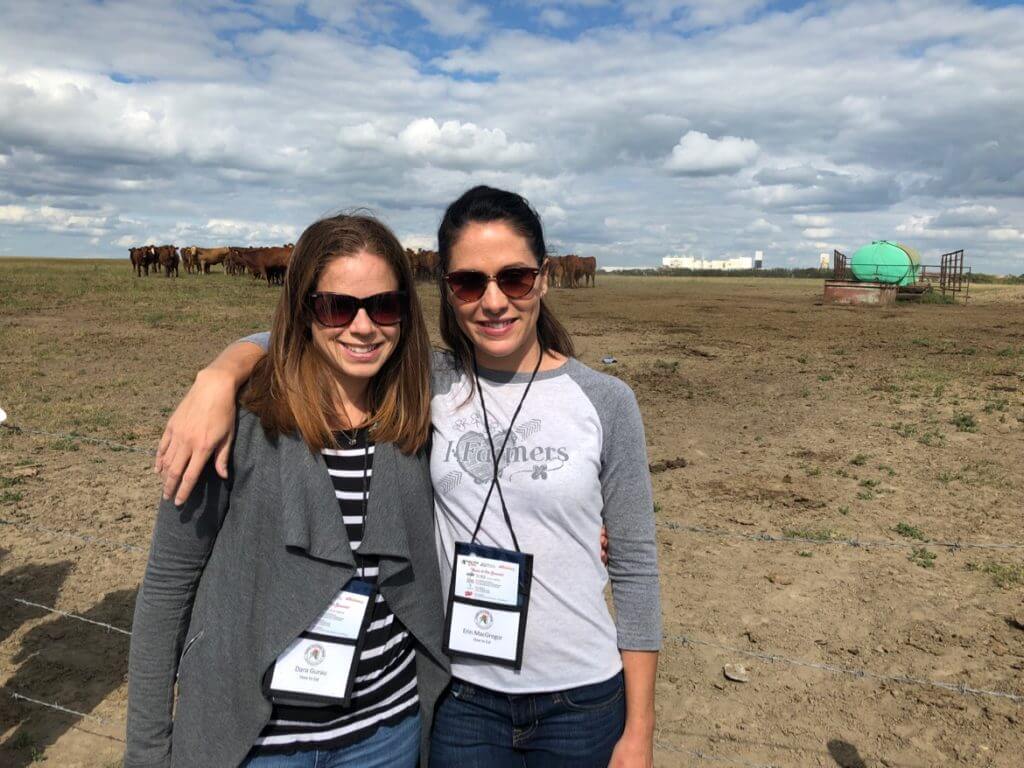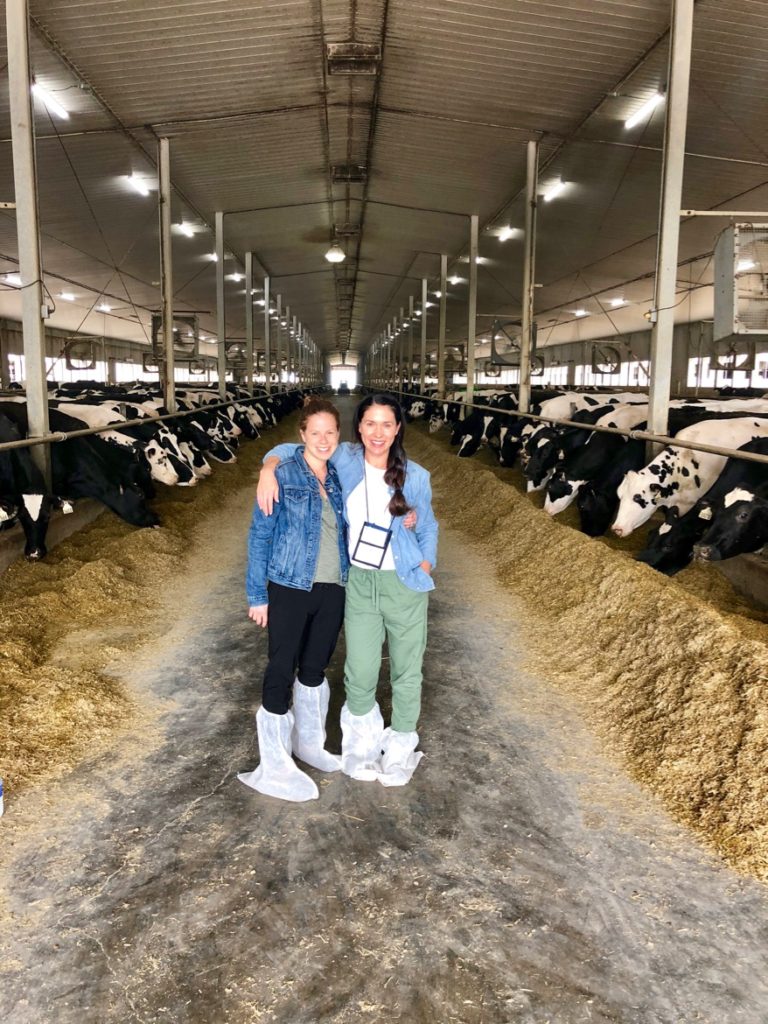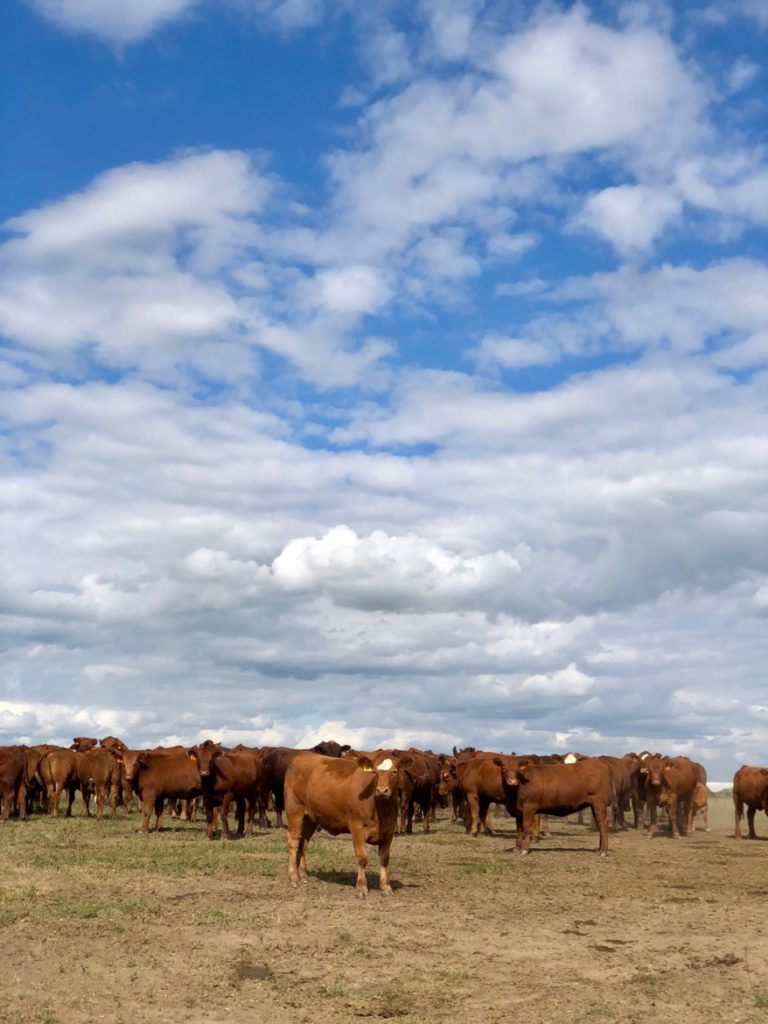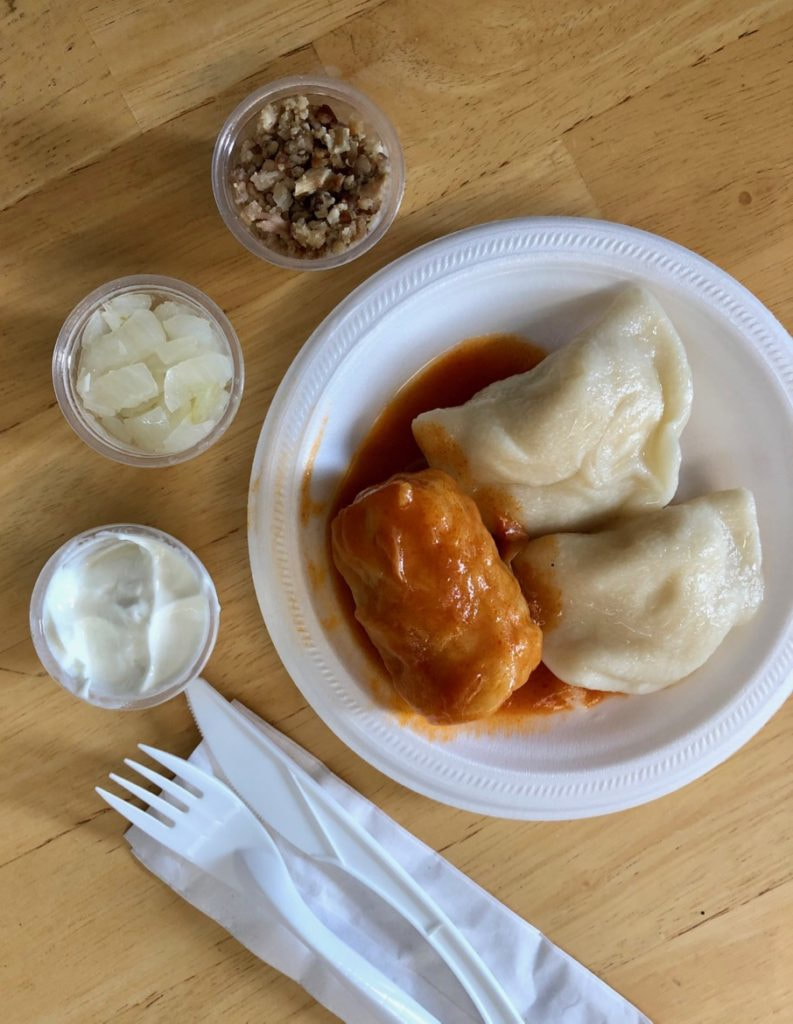|
By: Erin MacGregor, RD., P.H.Ec. of Howtoeat Here at How to Eat, 2018 has been a fruitful year of hands-on learning about where our food comes from. Over the past several months, Dara and I have had opportunities to meet farmers, plant scientists and agriculture experts in a number of different settings, and we’ve learned a lot about what is and isn’t true when it comes to our food system. Last month, the folks at Farm and Food Care Saskatchewan invited us out to Saskatoon where we hobnobbed with real-life Canadian farmers and producers who hosted us in touring their farms and production facilities and fielded some of the most common questions we hear from our friends, family and followers.  Farm and Food Care’s mission is to provide credible information on food and farming to non-farmers. They are supported by most of the major agricultural groups in Saskatchewan, along with food processors, agri-business, government and individuals who support their vision of connecting consumers to food and farming. Fun fact: Did you know that a hundred years ago, about half of Canada’s population worked on farms, and that today that number is less than 2%? This means we’re further removed from where our food comes from than ever before. As a result, our access to reliable and legitimate resources for answering questions about our food (read: farmers) is limited. We know consumers are learning about their food from the wrong people (marketing experts) and we want to help bridge the gap (chasm, really) that exists between the people who grow food and the people who eat food. Here are some of the things we learned to address four of the most common food and farming misconceptions out there – and our sources are vetted carefully: farmers! 1. Farms have become huge, faceless corporations While farms have indeed become larger, 97% of Canadian farms remain family-owned. (This is also true in the U.S. by the way) Some farm families do incorporate for a variety of business reasons, including succession planning for future generations. Many farms are still handed down from generation to generation, where granddad might work alongside his kids and even grandkids. Incorporation is not necessarily indicative of the farm’s size either, which can range in size from small vineyards and orchards to expansive grain farms and cattle ranches. A big reason the average farm size is growing is due to the adoption of modern technology and the evolution of farm equipment to make food production more efficient. As nostalgic as it feels, the falsely idealistic image of an Old McDonald-style farmer perpetuates that disconnect between how our food is produced and by whom, with us as consumers. Old McD is doing a disservice to today’s modern, formally-educated farmer who has a greater awareness of plant science, food safety, environmental sustainability and animal welfare than ever before. Another big takeaway here is to remember that farmers feed their families the same food they grow and produce for us. They are invested in keeping their families, land and animals healthy and safe. What kind of a business plan would it be otherwise? 2. Antibiotic use in farming is widespread and reckless In recent years food marketing campaigns have done an excellent job convincing us that antibiotics exist in our everyday food supply and that they are used indiscriminately. Some antibiotics are approved for use in treating and preventing illnesses that may otherwise cause an animal to suffer or would put a whole flock/ litter/ herd at risk. One of the big concerns we hear related to antibiotic use is antibiotic resistance. This occurs when an antibiotic no longer effectively fights a particular disease. It is a complex topic which in part involves the use, misuse and overuse of antibiotics in both animals and humans. As a result, changes in regulations have evolved to minimize the use of antibiotics that also have use in human medicine. On top of that, research into disease treatment and prevention using vaccines and probiotics as alternatives, is making big strides. The biggest takeaway with respect to antibiotics is this: whether animals are raised with or without antibiotics, there are no antibiotic residues in your food. Ever. Even when an animal is treated with antibiotics for illness, they are taken out of the supply chain for a withdrawal period. In milk production, if antibiotic residues are found in a batch of milk at the processing plant, the entire batch would be discarded and the contaminated milk traced back to the offending farm. Fines for milk that contains contaminants are severe and dairy farmers would never willfully risk an entire batch of hard-earned product. At the end of the day, antibiotic use in agriculture is highly regulated and is used sparingly to treat sick animals, and protect our food supply. They are never present in your food. 3. Hormone use is rampant in animal agriculture First, let’s define hormone: Hormones are messenger molecules that regulate different functions, and they exist naturally across all plant and animal species. If you come across any food claiming to be hormone-free, that’s a bunch of baloney. Nothing is hormone-free. In Canada and the U.S. all egg, poultry, milk and pork is produced without the use of added hormones (again though, that doesn’t mean they’re hormone-free). Growth hormones are only approved for use in beef cattle. Their role is to make the conversion of the cattle’s feed to muscle more efficient. This is done so that fewer resources are needed to raise each animal. But here’s the thing. You are not eating ‘hormone-laced meat’. Regardless of whether hormones are used, all beef cattle produce meat with similar levels of hormones. There is actually more variation in hormone levels between male and female beef cattle than between treated and untreated animals. In fact, if you enjoy a nice pint of sudsy beer with your grilled steak, you’ll be ingesting seven times more estrogen from the booze than from your meat. 4. Obviously, organic is better Let’s start with what ‘organic’ means (and what is doesn’t) in Canada. Generally, food that is produced organically is produced without:
The demand for organic food is Canada has been growing almost 14% per year for over 10 years running. Part of this demand is driven by a false narrative that organic is better, safer, more nutritious and more environmentally sustainable. This is a narrative that has been sold to us largely by organic marketers. Let’s be clear – organic food is most certainly good, safe, and nutritious, and farmers are always aiming for more sustainable production. But the same is true of conventionally produced food. We are fortunate to have a variety of choice when it comes to food in Canada. You can feel confident knowing that you can make the choice that’s right for you without feeling you’re compromising safety, nutrition or quality. Let’s hear it. Do you have concerns about food or farming practices? We want to know!
Erin
1 Comment
Lori Shushack
9/19/2018 02:32:29 pm
Really good information about "hormones" and "antibiotic free" claims.
Reply
Your comment will be posted after it is approved.
Leave a Reply. |
The Ontario Home Economics Association, a self-regulating body of professional Home Economists, promotes high professional standards among its members so that they may assist families and individuals to achieve and maintain a desirable quality of life. Categories
All
Archives
April 2024
|
|
Subscribe to our mailing list
|
|
Unsubscribe from our mailing list
|
Copyright © 2023 Ontario Home Economics Association (OHEA). All Rights Reserved.








 RSS Feed
RSS Feed